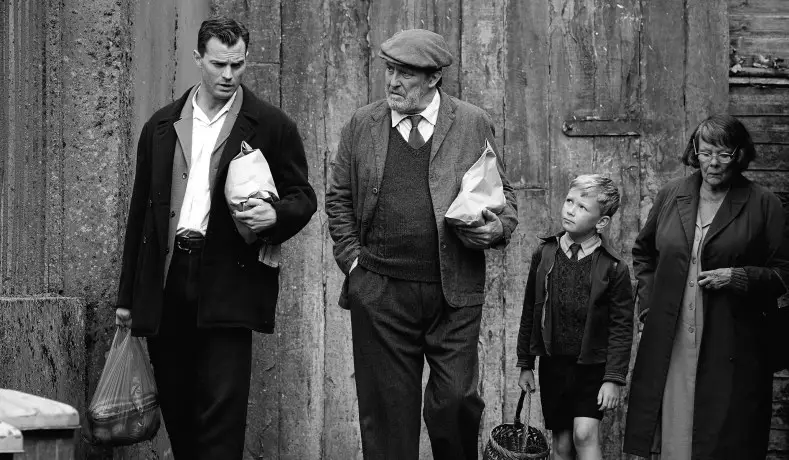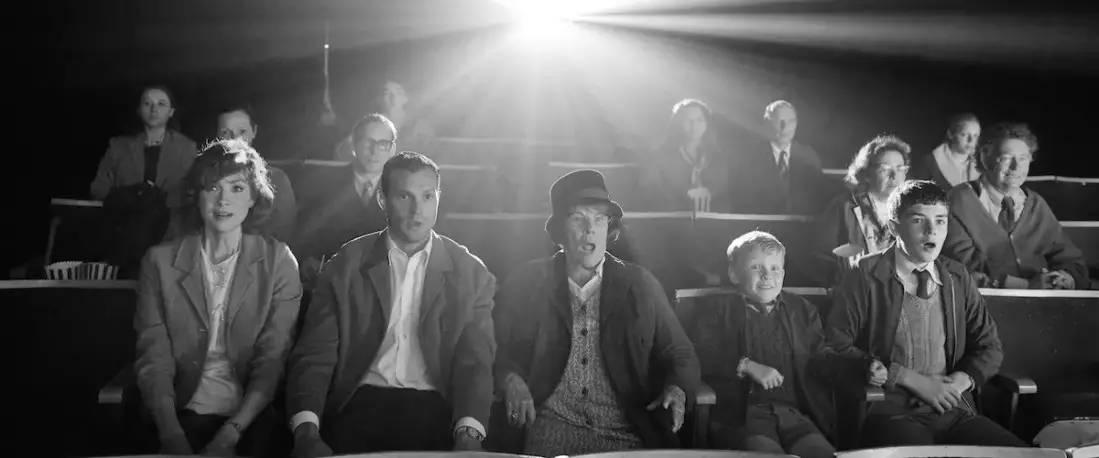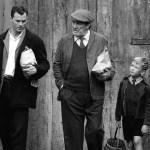‘Belfast’ Review: “An Act of Radical Tenderness”

Restraint. Heart. Timelessness. These are hardly the words that come to mind discussing the famed filmography of multi-hyphenate Sir Kenneth Branagh. His austere Shakespeare adaptations, in which he often shamelessly stars, get just as much acclaim from the masses as they do ridicule for a perceived pretentious bent. Even with the occasional Thor or Murder on the Orient Express, many consider Branagh to be the consummate idea of the self-described “important” artist. Of all things, who knew it would be his semi-autobiographical film Belfast that would obliterate that notion?
Belfast is an act of radical tenderness by way of cinema. Set in the titular capital of Northern Ireland, the film, written-directed by Branagh, covers the start of a conflict known as “The Troubles”. In the micro, this was an inter-community conflict between Protestants and Catholics, although there are many more dimensions to it. Dimensions not entirely comprehended by our protagonist, grade school-aged Buddy (Jude Hill).
READ: ‘Love Hard’ Review: “A Way Back”
Buddy is our window into the world of Belfast. Some might call him an unreliable narrator, although I think there is great truth to his experience. Jude Hill nails the naive wonder of discovering the joys of the world for the first time, as well as the fear of growing up in the shadow of adult conflict. Hill never loses his spunk, that mischievous sense of hell-raising that defines childhood. He’s a youthful conduit into a narrative that reinforces the power of empathy.
Now, there’s bound to be eye-rolls at that last sentence. Just as well, there are bound to be eye-rolls at the film’s black and white cinematography, courtesy of Haris Zambarloukos. The simple theme of leading with love and the stripped-back look of the film serves the purpose of, well, stripping things back. Belfast presents itself with no frills. No bull.
It’s staggering just how often this approach leads to tear-jerking moments or soaring ones. The latter manifests itself in the youthful adventures of Buddy. Seeing him trying to act on his first crush, stealing from a candy store, or slaying imaginary creatures reminds us of how fun it was to take those first steps towards growing up. When it comes to the former, Belfast packs a wallop comparable to something like this year’s Pig.
Buddy can’t help overhearing that strife this his parents (Jamie Dornan and Caitríona Balfe) go through trying to keep their family afloat. Dornan is a phenomenal talent, yet it’s Balfe who dominates these scenes. Anyone with a mother who would do anything for her children will be deeply touched by her rough-and-tumble, though unbelievably kindhearted, portrayal. Not all scenes that inspire audiences to tears have to be so dramatic. The interactions between Buddy’s grandfather (Ciarán Hinds) and grandmother (Judi Dench) are a reminder of what everlasting love looks like.
READ: ‘Clifford the Big Red Dog’ Review: “Content First, Entertainment Dead Last”
Belfast is a “moments” movie. Intended to capture the brunt of the experience Buddy – a clear stand-in for a young Branagh – had to come to terms with growing up. Any movie with that kind of structure can suffer from a case of aimlessness. Nevertheless, Belfast avoids this trap by mining the magic of Buddy’s formative discovery. Its fresh-faced heart on its sleeve perspective recalls the works of Studio Ghibli; a blend of enchantment and deep candor.
One can’t ignore the cultural relevance of Belfast, either. “The Troubles” have rarely been covered in popular film, and there’s certainly a part of me that felt connected to the Irish brood I’m descended from. Personal connection or not, Belfast is a special film. Throwing away all the laurels, what you’re left with is straight-up sincerity. Let it in. – James Preston Poole
Rating: 10/10
Belfast is now in theaters.




